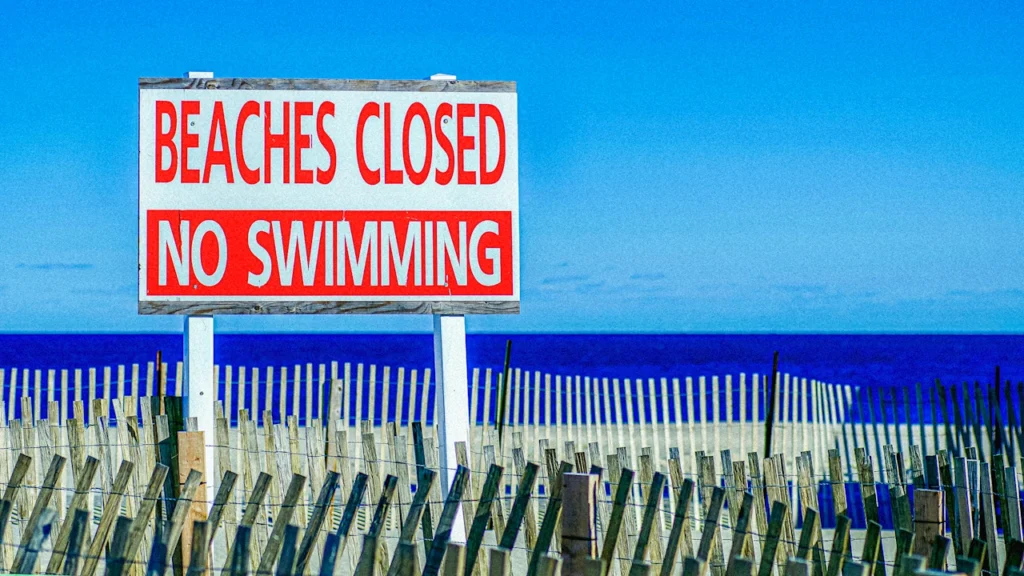
Beach season is almost is our rear view, but a number of beaches across the U.S. are closing a little early this year. The reason? High levels of fecal contamination in the water.
Beaches along the east coast, from Maine to Florida, are the most affected. Closures this week have included popular destinations like Keyes Memorial Beach in Cape Cod, Benjamin’s Beach on Long Island, and several beaches in the Florida Keys. However, warnings in San Diego, California, and even Hawaii have also been reported.
“Benjamin’s Beach in Bay Shore is closed to bathing due to the finding of bacteria at levels in excess of acceptable criteria,” one notice read. “According to Suffolk County Commissioner of Health Dr. Gregson Pigott, bathing in bacteria-contaminated water can result in gastrointestinal illness, as well as infections of the eyes, ears, nose, and throat.”
It’s not the first time this swimming season that unsafe water conditions have been reported. Just before the Fourth of July, at least six states issued closures or warnings over fecal contamination. Days later, Environmental America released a report that found the majority of U.S. beaches, 61%, had “potentially unsafe” levels of contamination in 2024. It said that roughly two-thirds (1,930 out of 3,187) of beaches had at least one day where fecal contamination was at unsafe levels. “Each year, there are an estimated 57 million cases of illness in the U.S. resulting from swimming in oceans, lakes, rivers, and ponds. The vast majority of these illnesses go unreported,” the report states. “Contaminated water can also trigger health warnings or closures that interfere with our ability to enjoy the beach.”
According to the U.S. Centers for Disease Control and Prevention (CDC), heavy rains can contribute to fecal bacteria being carried into bodies of water. “Water contaminated with these germs can make you sick if you swallow it,” it says. “It can also cause an infection if you get into the water with an open cut or wound (especially from a surgery or piercing).”
Previous studies have found that frequent water-related events, like frequent floods and droughts, are inextricably linked to human-made climate change. Warmer water can fuel hurricane activity and floods, and is also linked to higher rates of dangerous flesh-eating bacteria in coastal waters.
“Many people with Vibrio vulnificus infection can get seriously ill and need intensive care or limb amputation,” the CDC says. “About 1 in 5 people with this infection die, sometimes within a day or two of becoming ill.”

